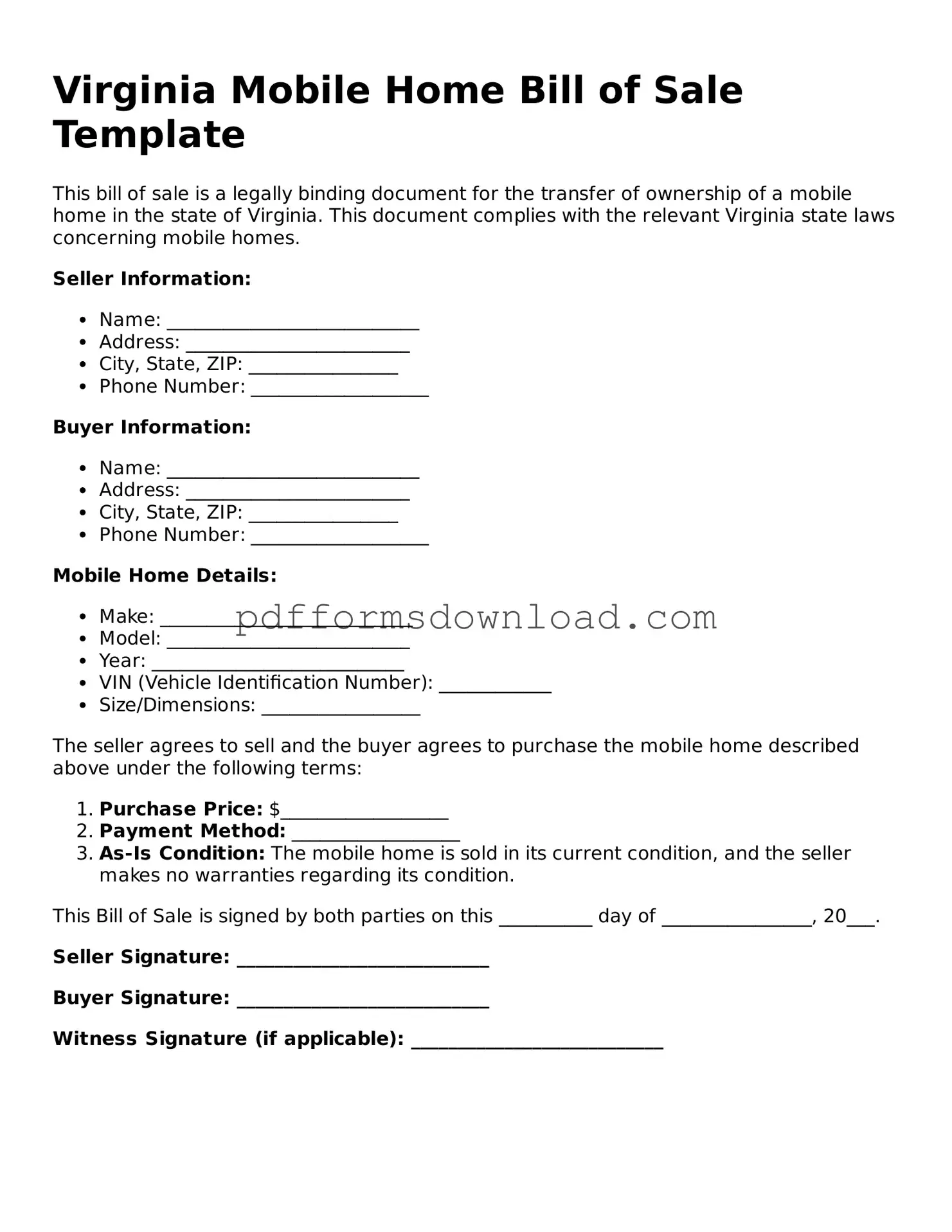Printable Virginia Mobile Home Bill of Sale Form
The Virginia Mobile Home Bill of Sale is a legal document used to transfer ownership of a mobile home from one party to another. This form serves as proof of the transaction and includes essential details about the mobile home and the parties involved. To ensure a smooth transfer process, it’s important to fill out this form accurately.
Ready to get started? Fill out the form by clicking the button below.
Make This Document Now

Printable Virginia Mobile Home Bill of Sale Form
Make This Document Now

Make This Document Now
or
Free PDF File
Your form is almost ready
Complete your Mobile Home Bill of Sale online — edit, save, and download easily.